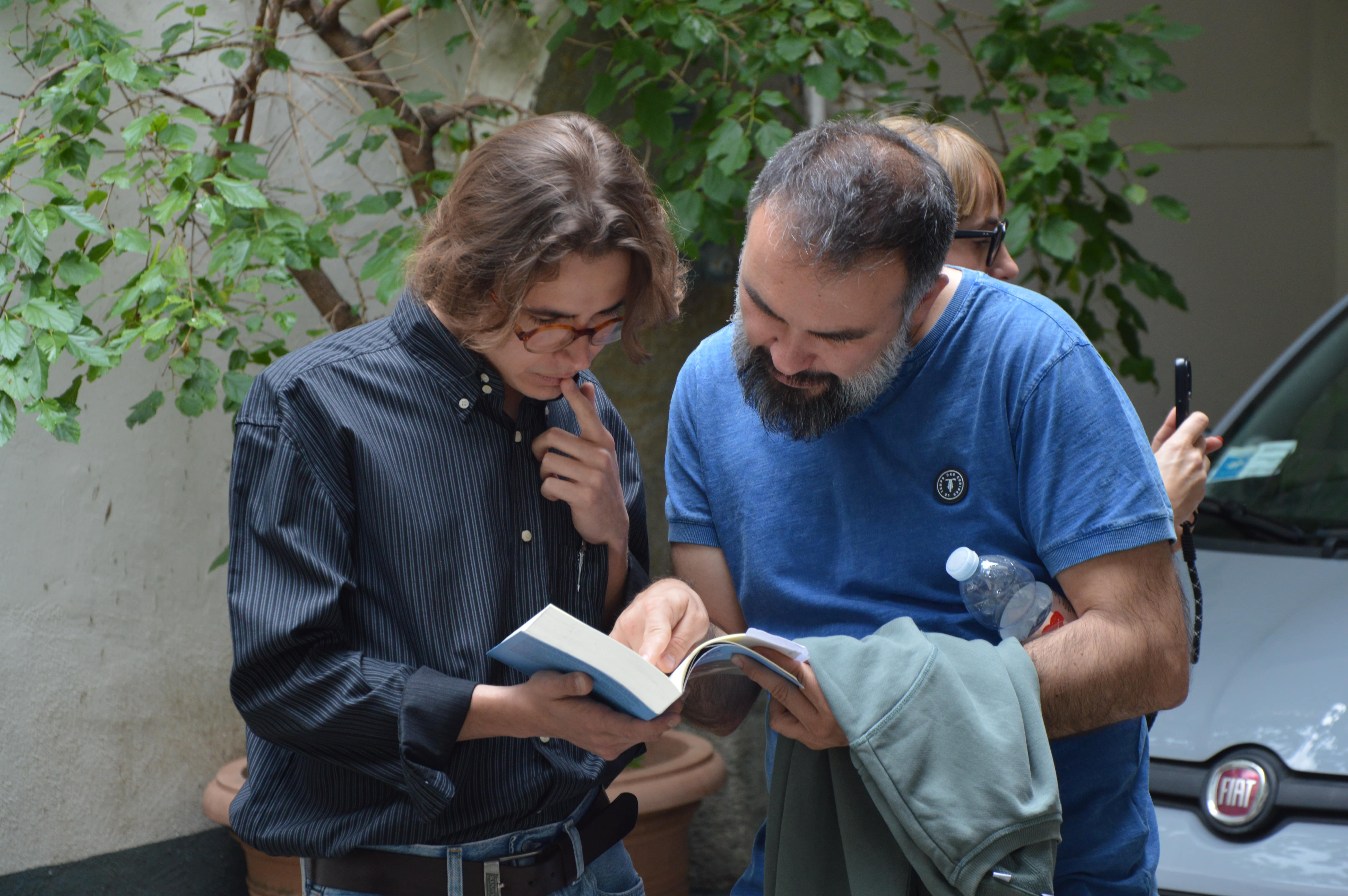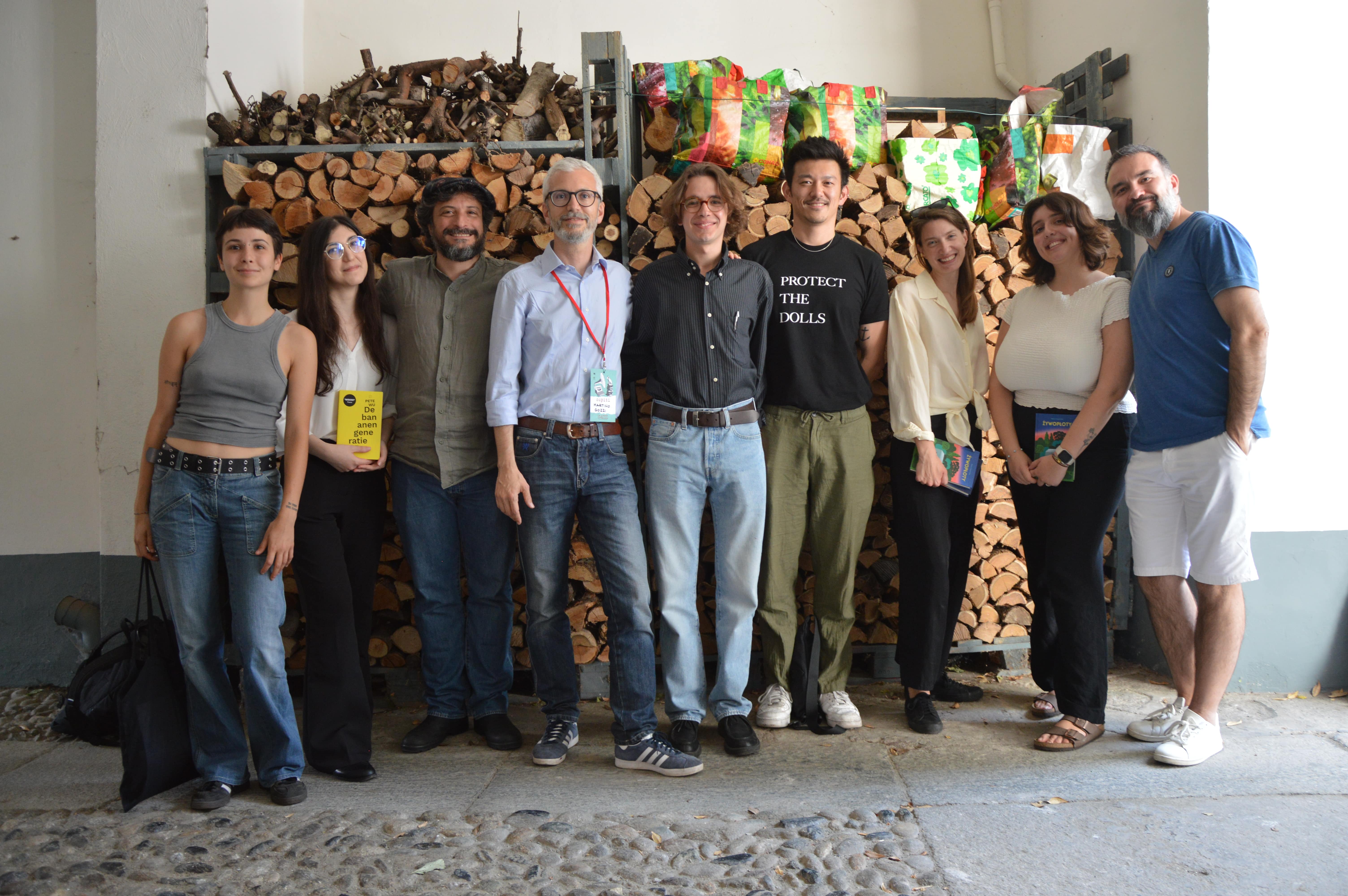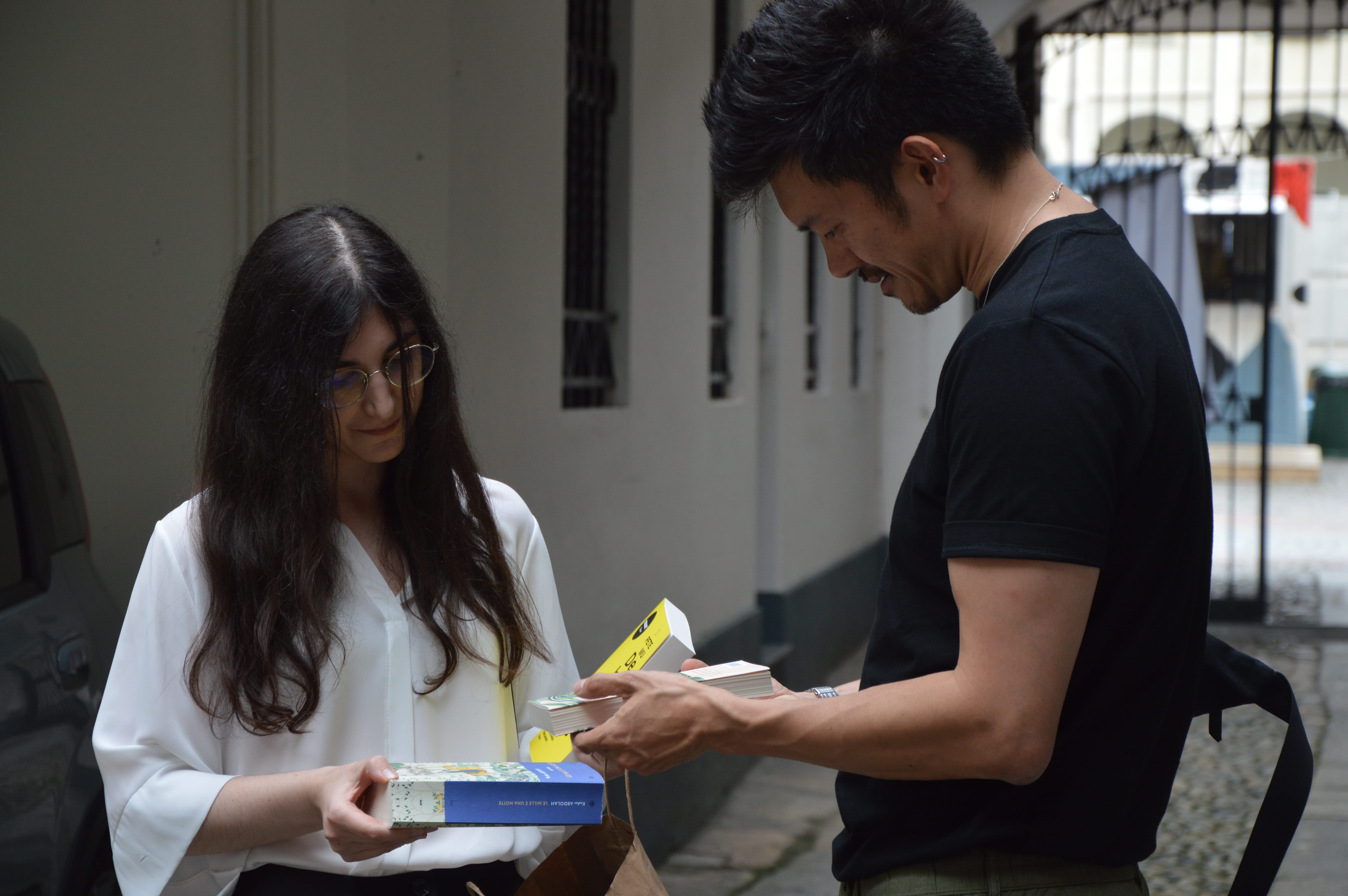Some POVs from Ivrea Book Fair – by Lorenzo Carnielo (Scuola Holden)
June 2nd. Republic Day in Italy. Direction: Ivrea, from Turin.
Ivrea is a peculiar city. A little over 20,000 residents, forty minutes from Torino. And yet, in Italy, it’s pretty famous.
Partly for the oranges: every year during Carnival, locals split into teams based on their neighbourhoods and throw oranges at one another in the main square. It goes on for days. One team wins. There are rules, rankings, rivalries. It’s violent, and theatrical, and rooted in something older. It has to do with history. With rebellion. But it’s another story - and worth looking up, I suggest!
Then there’s Olivetti. Not just the iconic typewriters - which were born here - but an entire vision of industry and work. A company that, in the mid-20th century, imagined its workers not as replaceable tools but as citizens. With libraries, theatres, architecture, rights. A place that believed in community as much as productivity.
And then, there’s the thing someone in the car said as we were arriving: “Ivrea has the highest number of bookshops per capita in Italy.”
Not true - we did check, of course. But the fact that we believed it for a second tells you something: in June the city hosts La Grande Invasione, a literary festival that fills its streets, squares, courtyards, shops. Writers, translators, students, curious passersby - all gathered around books. Not for the market, but for the act of reading itself.
Every year, Scuola Holden is part of the programme. This year, one of the events was curated around three CELA authors and their translators. Kike Cherta with Martino Gandi, Pete Wu with Jessica Rostro Benigno, and Maria Karpińska with Paola Pappalardo. The conversation was moderated by Martino Gozzi.
The venue was La Galleria del Libro - “Book Gallery”, an independent bookshop tucked in one of the old streets. In Italian, “galleria” means both “gallery” and “tunnel” - and this place had something of both. We entered through a room lined with books, moved through a narrow corridor, then another room, and another. Shelves everywhere. Only at the very back, past the last passage, a room opened up. About fifty chairs, and a wooden table.
Three things, for each writer & translator, which impressed me:
- About translation: Kike Cherta & Martino Gandi
Los Miralles is a strange book. It opens with a devil sighting and ends - well, it doesn’t really end. It’s one of those books that feel in progress even after the last page. The kind Borges said is only finished because it got printed.
Dense, physical prose. Sudden pockets of lyricism. Stories that are also essays, memories that become fiction. His translator, Martino Gandi, called it a “reader squared” job. Because it’s not just about understanding - it’s about rewriting too. At one point, Martino talked about a word: rasguear, the way you strum a guitar. No perfect match in Italian, in that context. So he tried an image. He tested it on friends, asked if it made sense or if he’d made it up. In English it’s something like: “A flock of starlings plucking the strings of the sky.”
When they met, Kike read it and smiled: “I didn’t even know that image was there.” But it was.
- About identity: Pete Wu & Jessica Rostro Benigno
“You can feel as Western as you like, but to the world, you’ll always be Chinese. Yellow on the outside, white on the inside. Like a banana.” That’s what Pete’s mother once told him - half joking, half proud. It became the title of his book: De bananengeneratie - “The Banana Generation”.
Pete grew up in the Netherlands, the son of Chinese immigrants. He doesn’t speak his parents’ language, which creates a further gap. At home, he’s “too Western.” Outside, still “the Chinese one.”
“Usually,” he says, “when people talk about Chinese food or travel to China, they all look at me.”
But something more happened. One night, he was watching TV. It was time for a Chinese contestant on Holland’s Got Talent, about to sing an opera piece. One of the judges looked at him and said - before he even opened his mouth - “Number 39 with rice?”. It was prime time. Millions of viewers. And the joke landed easily, almost casually, with the audience laughing along.
And that’s when it became clear. It wasn’t just about his own story. It was about something larger - a whole generation without mirrors. In the Netherlands, there were over 100,000 people of Chinese descent, many born and raised there. Yet their stories were missing. No books, no characters, no voices in the public conversation. That silence is what made him write.
His translator, Jessica Rostro Benigno, spoke about how hard it was to carry that complexity into Italian: “There’s an expression in the book comparing the relationship with his parents to the crowns of trees: close, stirred by the same wind, but never quite touching. In Dutch it’s two words. In Italian, it took fine carving.”
- About writing: Maria Karpińska & Paola Pappalardo
In Siepi - “Hedges” -, Maria Karpińska’s first novel, the narrator wants a job that doesn’t exist. He says he can write anything - announcements, pamphlets, contracts - as long as he’s given a word to start from. Just one word, and he’ll sit down and write. That’s all he asks. Not journalism - too wide, too serious. Just a prompt, and a desk. An inspiration to write. Then someone actually hires him. A woman who gives him not a word, but a dog. Sick, ugly, on the verge of dying. “That’s your inspiration,” she says. So he takes it. And names it exactly that: Ispirazione – “Inspiration”.
It’s grotesque, ironic, almost absurd. But it’s true: inspiration is not always romantic. Sometimes, it has bad teeth. It stinks. And still, it moves something.
Maria mentioned Italo Calvino and Italo Svevo as distant Italian mentors - two writers who, in very different ways, explored the tragic ironies of everyday life. Siepi does the same. It plays, but never lets go. Her translator, Paola Pappalardo, said it was one of the hardest texts she’s worked on. Not because of obscure words – but because of rhythm. In Polish, she explained, a single word can carry a whole sentence. But if you translate it that way, the flow dies. So she listened. Looked for echoes. Built bridges. Something that felt both faithful and alive. Something that moves.
A round of applause. A couple of photos. Then we stepped outside. The gelato place was still open, so we got one. Some of the CELA people were still holding their books. The first real heat of summer was making us sweat a little.
And me? As always when I’m around them, I went home with more questions than answers. And I’ve come to believe questions matter more, these days. Answers are easy - never been easier. Open Google, or ChatGPT, and you’ll find one for almost anything.
But the question? That, you have to invent.
And the best ones, I think, are born from human connection. From two, three, ten, a hundred people sitting around a table, talking about what they love. Whether it’s translation. Identity. Writing. Or gelato.


